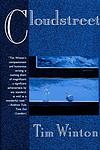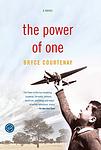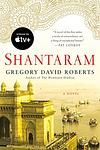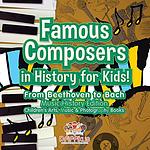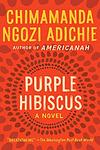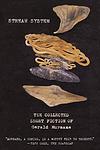The Greatest Nigerian, Australian "Fiction" Books Since 1970
Click to learn how this list is calculated.
This list represents a comprehensive and trusted collection of the greatest books. Developed through a specialized algorithm, it brings together 300 'best of' book lists to form a definitive guide to the world's most acclaimed books. For those interested in how these books are chosen, additional details can be found on the rankings page.
Genres
Countries
Date Range
Reading Statistics
Click the button below to see how many of these books you've read!
Download
If you're interested in downloading this list as a CSV file for use in a spreadsheet application, you can easily do so by clicking the button below. Please note that to ensure a manageable file size and faster download, the CSV will include details for only the first 500 books.
Download-
1. The Thorn Birds by Colleen McCullough
"The Thorn Birds" is a sweeping family saga that spans three generations of the Cleary family, set against the backdrop of the Australian outback. It focuses on the forbidden love between the beautiful Meggie Cleary and the family's priest, Father Ralph de Bricassart. The novel explores themes of love, religion, and ambition, as Meggie and Ralph struggle with their feelings for each other and the choices they must make.
-
2. Half of a Yellow Sun by Chimamanda Ngozi Adichie
The novel is set in Nigeria during the Biafran War, exploring the impact of the conflict on the lives of its characters. The story is told from the perspective of three characters: a young houseboy, a radical university professor, and the professor's wealthy lover. The narrative delves into themes of love, race, and war, offering a vivid depiction of the horrors of conflict and the resilience of the human spirit.
-
3. The Famished Road by Ben Okri
The novel centers around the life of an abiku, a spirit child, who resides in the bustling city of Lagos. Despite numerous attempts to return to the spiritual world, the boy is tethered to the physical realm through the love of his mother. As he navigates through the political unrest and poverty of post-colonial Nigeria, he experiences a series of surreal and mystical encounters, all while wrestling with the pull of the spirit world. The narrative is a blend of reality and the supernatural, providing a unique perspective on the struggles and complexities of human life.
-
4. Oscar and Lucinda by Peter Carey
"Oscar and Lucinda" is a novel that tells the story of two unconventional individuals, Oscar and Lucinda, who meet on a ship going to Australia in the mid-19th century. Oscar, a young English clergyman, and Lucinda, a teenage Australian heiress, bond over their shared love of gambling. Their mutual obsession leads to a high-stakes wager that will have lasting consequences for both of them. The novel explores themes of love, faith, and obsession against the backdrop of Victorian-era England and Australia.
-
5. Americanah by Chimamanda Ngozi Adichie
The novel follows a young Nigerian woman who emigrates to the United States for a university education. While there, she experiences racism and begins blogging about her experiences as an African woman in America. Meanwhile, her high school sweetheart faces his own struggles in England and Nigeria. The story is a powerful exploration of race, immigration, and the complex nature of identity, love, and belonging.
-
6. True History of the Kelly Gang by Peter Carey
This historical novel is a fictionalized account of the life of Australian outlaw Ned Kelly, told in the form of a journal written to his daughter. The narrative explores Kelly's life from childhood, his family's struggles with poverty and the law, his involvement in horse thievery, and his eventual formation of the Kelly Gang. The story culminates with the gang's infamous standoff with the police at Glenrowan, providing a humanizing perspective on a figure often portrayed as a ruthless criminal.
-
7. The Transit of Venus by Shirley Hazzard
The novel follows the lives of two orphaned Australian sisters, Caroline and Grace Bell, who move to England in the post-World War II era. The story revolves around their relationships, particularly Caroline's complex and often tragic love life. The narrative is filled with themes of love, fate, time, and the intricate complexities of human relationships, all set against the backdrop of significant historical events.
-
8. Second-class Citizen by Buchi Emecheta
"Second-Class Citizen" is a poignant narrative about a young Nigerian woman, Adah, who dreams of getting an education and moving to the United Kingdom. Despite cultural and societal obstacles, Adah manages to achieve her dream but is met with more hardship as she faces racial discrimination, an abusive marriage, and the struggle of raising five children in a foreign land. Through her resilience, she continues to strive for a better life, depicting the struggles of immigrants and the strength of women.
-
9. Cloudstreet by Tim Winton
"Cloudstreet" is a sweeping family saga set in post-World War II Australia, following two families, the Pickles and the Lambs, who come to live together in a large, ramshackle house on Cloud Street over two decades. The story explores their struggles, triumphs, and the ways they are haunted and blessed by a mysterious spiritual presence. The novel is a celebration of endurance, unity, and the many forms of love, set against the backdrop of a changing Australia.
-
10. The Power of One by Bryce Courtenay
This novel follows the life of a young English boy named Peekay who grows up in South Africa during the 1930s and 1940s. Despite facing bullying, racial segregation, and the hardships of World War II, Peekay remains resilient and determined to follow his dream of becoming a world-class boxer. Along his journey, he encounters various mentors who teach him about survival, love, and the power of one person to make a significant difference in the world.
-
11. Schindler's Ark by Thomas Keneally
The book is a historical novel based on the true story of a German industrialist who becomes an unlikely humanitarian amid the barbaric Nazi reign. When he witnesses the horrors inflicted upon the Jews, he is moved to save as many as he can by employing them in his factory. His actions, driven by courage and compassion, lead to the salvation of over a thousand Jewish workers from certain death in the Holocaust. The narrative explores themes of morality, survival, and the capacity for good in the face of overwhelming evil, as the protagonist navigates the complexities of war and the human spirit.
-
12. Remembering Babylon by David Malouf
The novel explores the life of a young man who, after being shipwrecked, is raised by Aboriginals in 19th century Australia. After sixteen years, he attempts to reintegrate into European society, but is met with suspicion and hostility due to his adopted culture and lifestyle. The book delves into themes of identity, belonging, and the clash between Aboriginal and European cultures.
-
13. The Joys Of Motherhood by Buchi Emecheta
"The Joys of Motherhood" is a poignant and powerful novel that explores the life of Nnu Ego, a Nigerian woman who struggles to find fulfillment and happiness in the traditional role of motherhood. Set against the backdrop of colonial Nigeria, the story delves into themes of gender inequality, cultural expectations, and the sacrifices mothers make for their children. Through Nnu Ego's experiences, the author offers a thought-provoking examination of the complexities and contradictions of motherhood in a rapidly changing society.
-
14. A Fringe Of Leaves by Patrick White
Set in the early 19th century, the novel follows the journey of an Englishwoman who survives a shipwreck off the coast of Australia. Stranded on the unfamiliar continent, she is captured by Aboriginal people and experiences a dramatic cultural clash. As she adapts to the indigenous way of life, she undergoes a profound personal transformation, shedding the constraints of her genteel upbringing. Her struggle for survival and the eventual attempt to return to European society challenge her identity and perceptions of civilization, nature, and self, leading to a deep introspection about her place in the world.
-
15. Tirra Lirra By The River by Jessica Anderson
The novel revolves around the introspective journey of Nora Porteous, a woman who, after years of living abroad, returns to her childhood home in Queensland, Australia. As she reflects on her past, Nora grapples with the constraints of her conservative upbringing, her stifling marriage, and her pursuit of personal freedom and artistic expression. The narrative weaves through her memories, exploring themes of self-discovery, the role of women in society, and the search for identity. Through Nora's eyes, the reader experiences the poignant realization that life may not always align with youthful dreams, and that understanding and reconciling one's past is essential for moving forward.
-
16. Shantaram by Gregory David Roberts
The novel follows the life of a convicted Australian bank robber and heroin addict who escapes from prison and flees to India. Settling in the bustling city of Mumbai, he assumes a new identity and immerses himself in the local culture, forming a close bond with the people in a slum. As he navigates his new environment, he becomes entangled in various criminal activities, including running a free health clinic, working for the Bombay mafia, and fighting in Afghanistan. Throughout his journey, he grapples with love, forgiveness, and his quest for redemption, all while exploring themes of good and evil, friendship, and the complexities of the human spirit.
-
17. The Commandant by Jessica Anderson
"The Commandant" is a historical novel that explores the life of Frances Forbes, the wife of Commandant Patrick Logan, who was a penal colony superintendent in Australia during the 19th century. The story, narrated by Frances, provides a detailed account of their life in the colony, including the harsh conditions, the social hierarchy, and the relationships between the convicts, soldiers, and officers. The narrative also delves into Frances' personal life, her loneliness, her relationship with her husband, and her struggle to maintain her sanity amidst the harsh and isolated environment.
-
18. The Children's Bach by Helen Garner
"The Children's Bach" is a captivating novel that explores the complexities of family dynamics and the pursuit of happiness. Set in Melbourne, the story follows a group of interconnected characters as they navigate their relationships, dreams, and disappointments. Through beautiful prose and keen observations, the author delves into themes of love, loss, and the search for meaning in everyday life, creating a poignant and thought-provoking narrative.
-
19. Purple Hibiscus by Chimamanda Ngozi Adichie
"Purple Hibiscus" follows the story of a 15-year-old Nigerian girl, Kambili, and her older brother Jaja, who live a privileged life in Enugu. However, their father is a religious fanatic and a domestic tyrant. The siblings are sent to their Aunty Ifeoma's home, a university professor, who provides them a taste of freedom and shows them a different way of life outside their father's oppressive rule. The novel explores themes of colonialism, religious fanaticism, and the post-colonial political situation in Nigeria.
-
20. Idu by Flora Nwapa
This novel explores the life of Idu, a devoted wife whose existence becomes deeply intertwined with that of her husband, Amadi, who is the love of her life. Set against the backdrop of traditional Igbo society in Nigeria, the story delves into themes of love, loss, and the societal expectations placed upon women. When tragedy strikes and Idu is faced with Amadi's untimely death, her world is shattered, leading her to challenge the conventions and expectations of widowhood. Her profound connection to her husband transcends the physical realm, showcasing the depth of her love and commitment. Through Idu's journey, the narrative presents a poignant exploration of the roles of women, the significance of tradition, and the power of love to transcend the boundaries of life and death.
-
21. Children Of Blood And Bone by Tomi Adeyemi
In a world where magic has been suppressed and the maji people have been oppressed, Zélie, a young maji girl, embarks on a dangerous quest to restore magic and bring justice to her people. Alongside her brother and a rogue princess, Zélie must confront her own powers and face formidable enemies, navigating a treacherous landscape of betrayal and sacrifice. As they race against time, Zélie discovers that she may hold the key to not only saving her people, but also to changing the destiny of their entire nation.
-
22. Illywhacker by Peter Carey
The novel is a sprawling tale of deception, magic, and family history, narrated by a 139-year-old Australian con artist. He recounts his life's adventures, from snake handling to aircraft manufacturing, while weaving in the stories of his descendants. The narrative is a blend of historical fiction and tall tales, exploring themes of national identity, truth, and the art of storytelling itself. Through the protagonist's unreliable narration, the book challenges the reader to discern fact from fiction, all while painting a vivid picture of Australian society and its transformation over the 20th century.
-
23. An Image Of Africa by Chinua Achebe
"An Image of Africa" is a critical essay that explores the portrayal of Africa and Africans in Western literature, focusing particularly on Joseph Conrad's "Heart of Darkness." The author argues that Conrad, despite being celebrated as a paragon of modernist literature, presents Africa as an antithesis to Europe and civilization, and Africans as culturally and humanly inferior. This work challenges the implicit racism in treating Africa as merely a backdrop for the breakdown of Europeans, urging a reevaluation of how African people and their cultures are depicted in literature and beyond.
-
24. Inland by Gerald Murnane
Inland is a complex and introspective novel that explores the inner workings of the human mind and the concept of reality. The story is narrated by a man who is reflecting on his life, his relationships, and his experiences, using the vast landscapes of his native Australia as a metaphor for his inner world. The narrative is non-linear and often fragmented, reflecting the man's scattered thoughts and memories. The novel is a deep exploration of the human psyche, the nature of memory, and the power of the imagination.
-
25. The Little Hotel by Christina Stead
"The Little Hotel" is a novel that revolves around the lives of the guests and staff of a small Swiss hotel post-World War II. The narrative delves into the interactions, secrets, and complexities of its diverse characters, who range from exiles and refugees to tourists and the hotel's proprietors. Through a series of vignettes, the book paints a vivid picture of the human condition, exploring themes of displacement, identity, and the search for stability in a rapidly changing world. The hotel serves as a microcosm of society, where personal dramas and the echoes of global events intermingle, revealing the nuanced tapestry of post-war Europe.
Reading Statistics
Click the button below to see how many of these books you've read!
Download
If you're interested in downloading this list as a CSV file for use in a spreadsheet application, you can easily do so by clicking the button below. Please note that to ensure a manageable file size and faster download, the CSV will include details for only the first 500 books.
Download







